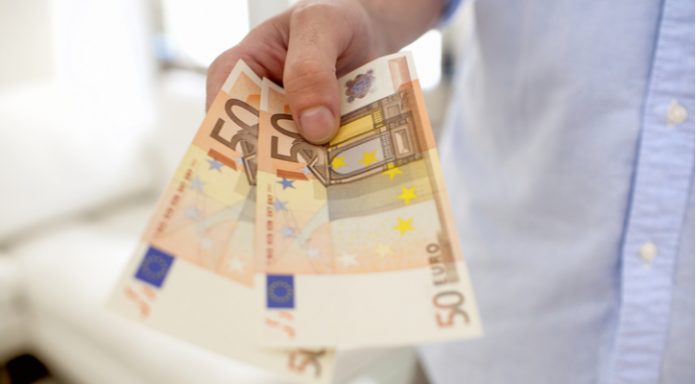After a fall lower and a move higher, the pound euro exchange rate ended the session flat. The pair reached a session high of €1.1317 before closing at €1.1300.
| What do these figures mean? |
|---|
| When measuring the value of a pair of currencies, one set equals 1 unit and the other shows the current equivalent. As the market moves, the amount will vary from minute to minute.h If the euro amount increases in this pairing, it’s positive for the pound. Or, if you were looking at it the other way around:1 EUR = 0.87271 GBPIn this example, €1 is equivalent to approximately £0.87. This measures the euro’s worth versus the British pound. If the sterling number gets larger, it’s good news for the euro. |
With no influential releases on the UK economic calendar, pound traders focused on Brexit developments. After EU leaders signed off the Brexit deal over the weekend, Theresa May is now facing an uphill struggle to convince her party and the rest of parliament that her deal is a good choice. Theresa May defiantly stood her ground following criticism from all sides in the commons on Monday. Theresa May is using the angle that it is her deal or no deal, a position which was supported by the EU. Donald Trump also weighed into the debate saying that the UK may not get a trade deal with the US with the current terms of Brexit.
| Why is a “soft” Brexit better for sterling than a “hard” Brexit? |
|---|
| A soft Brexit implies anything less than UK’s complete withdrawal from the EU. For example, it could mean the UK retains some form of membership to the European Union single market in exchange for some free movement of people, i.e. immigration. This is considered more positive than a “hard” Brexit, which is a full severance from the EU. The reason “soft” is considered more pound-friendly is because the economic impact would be lower. If there is less negative impact on the economy, foreign investors will continue to invest in the UK. As investment requires local currency, this increased demand for the pound then boosts its value. |
As Theresa May continue to try to drum up support for her deal, pound investors will turn their attention to data from the Confederation of British Industry (CBI). Analysts expect CBI data to show that reported sales lifted in November. This data comes after reports that Black Friday and Cyber Monday saw consumers spending heavily; all of which are encouraging signs for the economy.
| Why does strong economic data boost a country’s currency? |
|---|
| Solid economic indicators point to a strong economy. Strong economies have strong currencies because institutions look to invest in countries where growth prospects are high. These institutions require local currency to invest in the country, thus increasing demand and pushing up the money’s worth. So, when a country or region has good economic news, the value of the currency tends to rise. |
Euro Rebounds Amid Italian Softening Of Position
The euro remained relatively buoyant despite declining business confidence and some words of warning from European Central Bank President, Draghi. The IFO business confidence index for Germany dropped again in November to 102, down from 102.9 the previous month. This is the third straight month that business confidence has fallen and shows that business uncertainty has risen at the sharpest rate in a decade. Cooling business sentiment signals that the German economy, the largest economy in Europe, is slowing.
Euro traders didn’t dwell too long on the disappointing data, instead focusing on progress between Italy and Brussels. Italy is bowing to pressure to adjust its draft budget. Italy had been moving towards disciplinary action from Brussels over its planned excessive spending. However, reports that Italy could consider lowering its spending to 2% of GDP, down from 2.4% has lifted the mood towards the euro.
German retail sales will be in focus today. More disappointing data from the powerhouse of Europe could weigh on the euro.
This publication is provided for general information purposes only and is not intended to cover every aspect of the topics with which it deals. It is not intended to amount to advice on which you should rely. You must obtain professional or specialist advice before taking, or refraining from, any action on the basis of the content in this publication. The information in this publication does not constitute legal, tax or other professional advice from TransferWise Inc., Currency Live or its affiliates. Prior results do not guarantee a similar outcome. We make no representations, warranties or guarantees, whether express or implied, that the content in the publication is accurate, complete or up to date. Consult our risk warning page for more details.
This article was initially published on TransferWise.com from the same author. The content at Currency Live is the sole opinion of the authors and in no way reflects the views of TransferWise Inc.





